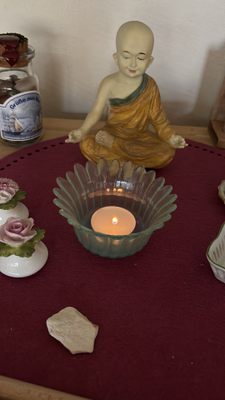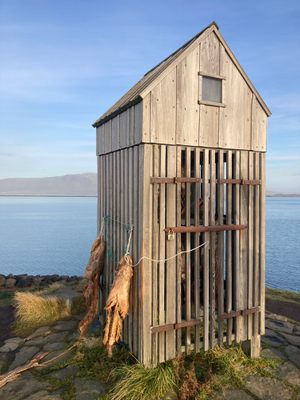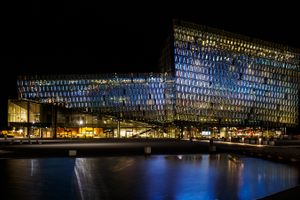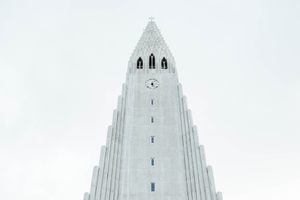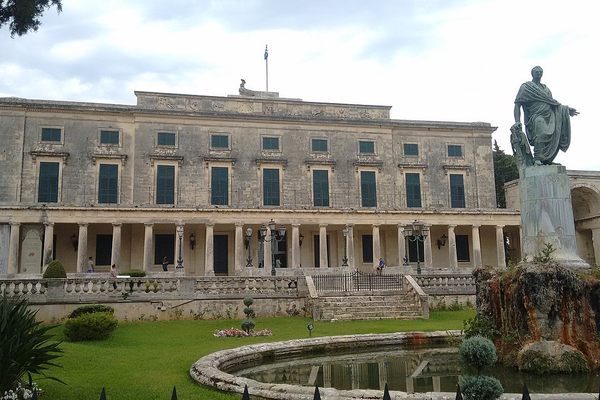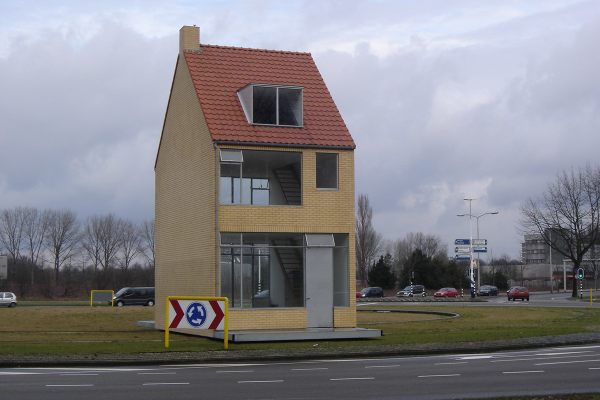About
Peeking from behind an industrial building in a busy Reykjavik harbor is this bright green hillock topped by a small wooden house. Its unique look suggest it could be the home of Icelandic elves or some other whimsical creatures. Instead, it is an earthwork art piece by Icelandic artist Ólöf Nordal, created in 2013 to serve as a bridge between the country’s modern capital and its surrounding wilderness.
It's named þúfa, which means a small mountain or hillock in Icelandic. A stone footpath winds in a spiral from the base to the top. At its peak, is a small wooden house modeled after a traditional structure for drying fish. Fishing is a major and long-standing industry in Iceland, making these structures a symbol of the local livelihood. Today, a skeletal fish can be found drying inside the house, as well as one lying just outside.
Related Tags
Know Before You Go
The house is open to the public. At the back of Harpa concert hall, on the side that faces Þúfa, is an informative panel with photos and explanation of the creation of Þúfa.
Iceland in Winter: Northern Lights & Geothermal Marvels
A land of folklore and myths on a backdrop of remarkable natural wonders.
Book NowCommunity Contributors
Added By
Published
September 4, 2024





